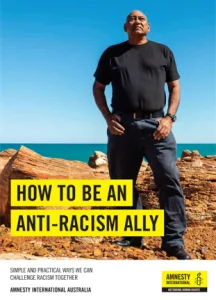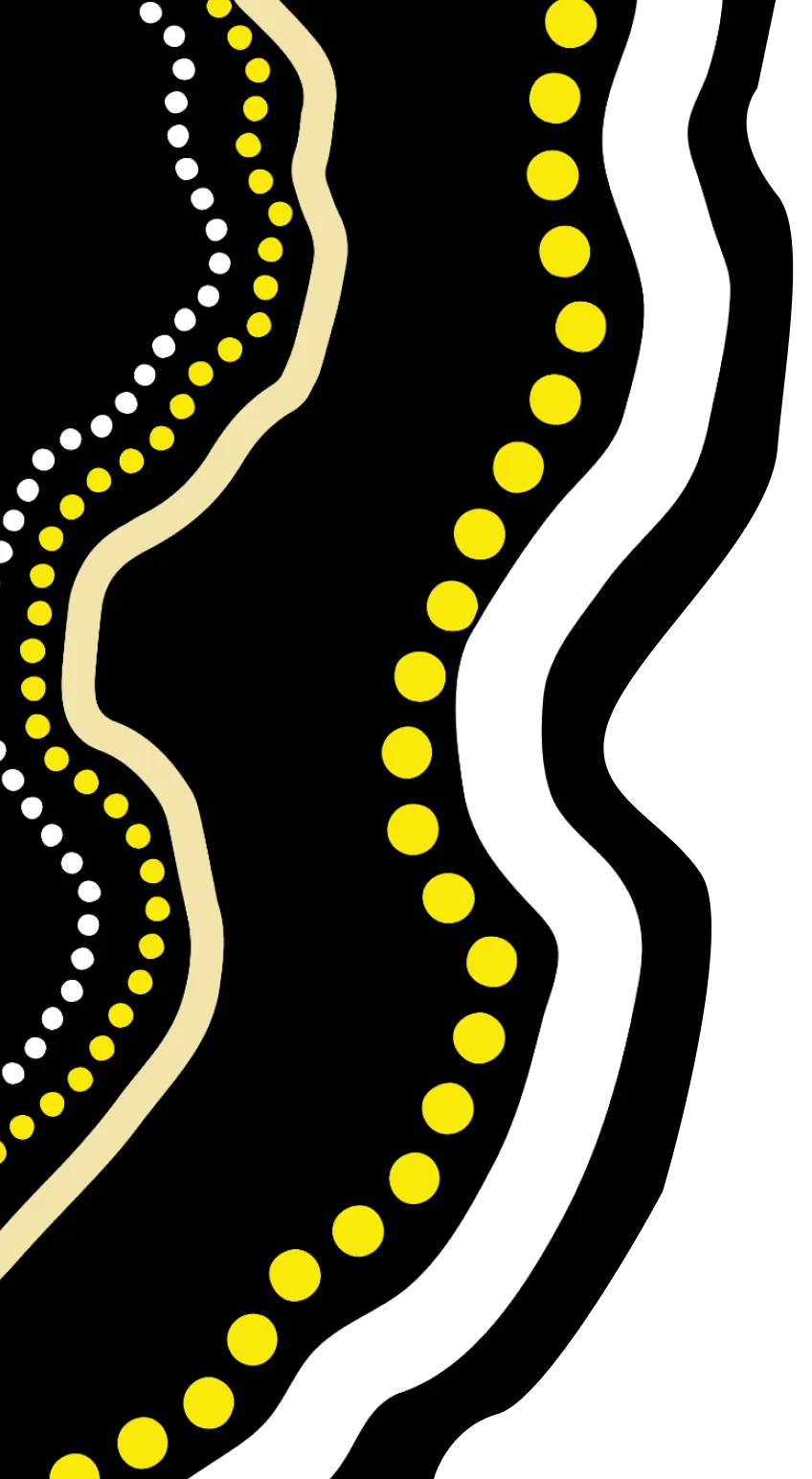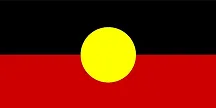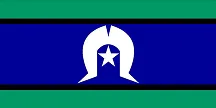The answers revealed
Keep an eye on your phone – we’ll be in touch to send your anti-racism ally guide to you! The guide presents simple and practical advice for all of us, as we strive to better recognise and address racism. We’ve included stories of lived experience and allyship, helpful conversation starters, recommended books, movies and podcasts, ways of taking action, and more.

Question 1: At a BBQ with your whole family, your uncle makes a racist joke. What do you do?
Answer: c. Engage him in a calm conversation about it. It’s important to challenge racism when you see it, but remember to support the person to do better, rather than making them feel attacked which will close them off to the conversation. If someone you know has made a racist comment, you should seek clarity on what has led to their comment, calmly explain why it’s hurtful and inaccurate, share your feelings, and let them know they’re causing harm.
Question 2: At the end of year party, your colleague tells you that they experienced racism from another colleague. How do you respond?
Answer: a. Listen, affirm their experience and ask how you can support them. Racism hurts. When someone shares their story with you, it’s important to deeply listen and reflect on what they’re saying. Affirm their experience, and don’t make it about you or how you’re feeling. Just be there for them and consider how you might’ve felt in that situation. It’s also important to ask the person how you can support them. Some people may want help reporting the incident, but others may just want someone to talk to. Ensure that you listen to what the other person wants.
Question 3: You bring your new partner to a family dinner and your mother asks them “Where are you really from?”. What do you do?
Answer: b. Gently correct her and then explain in private why that was harmful. The best way to respond when you see a microaggression (e.g. asking someone “where do you really come from?”) is to gently correct them (e.g. you could say “she is Australian; she was born here. Did you mean to ask what her ethnic background is?”) and then explain to them in private why what they said or did was harmful. Often, people don’t intend to cause harm with statements like these, so it’s important to help them do better rather than make them feel bad which can cause them to become defensive and closed off to what you’re saying.
Asking someone “where do you really come from? ”implies they are not from here and do not belong here based solely on their appearance. There are lots of ways to look, feel and be Australian. It makes the person feel like they are an “other”. Everyone has a different association with their culture and ethnicity, and it’s not anyone else’s place to question this.
An alternative question could be “What is your cultural background?”. But you must first take into account the context (i.e. What kind of environment are you in? Have you taken the time to build a relationship with the person first?) and also ask yourself why you are asking that question (i.e. Does the question reflect any stereotypes you may be holding?).
Question 4: At a New Year party, your sibling makes a joke about your friend’s culture, which upsets your friend. What is the right thing for your sibling to do?
Answer: b. Accept it was wrong, say sorry, and reflect on how they can do better. Sometimes we make mistakes. It’s okay. The most important thing to do when this happens is accept it, apologise, and don’t let it happen again. We should never make the situation about ourselves by begging for forgiveness or talking about how bad we feel, as it puts the onus onto the person who has experienced racism to make us feel better. Be there for the person, and in our own time we should work on learning how to be an ally, so we don’t make the same mistake again. Go to amnesty.org.au/ally for a list of resources to get started!
We hope you enjoyed the quiz!
Together, we can challenge racism by raising our voices for a better world, where human rights are enjoyed by all. You are part of a movement defending equality and demanding safety and a fair justice system for all.
From all of us at Amnesty, thank you for embarking on this journey with us as an anti-racism ally. Your support as an ally is changing lives.


